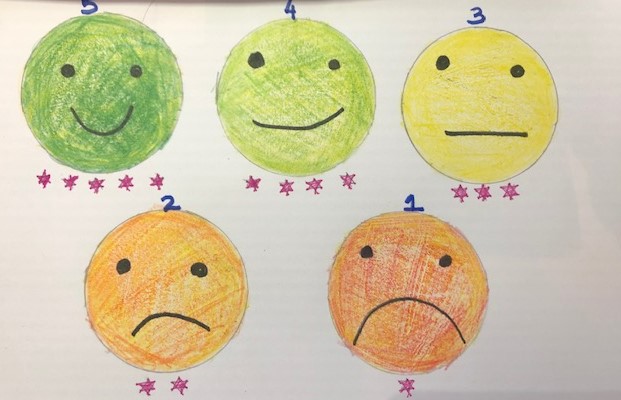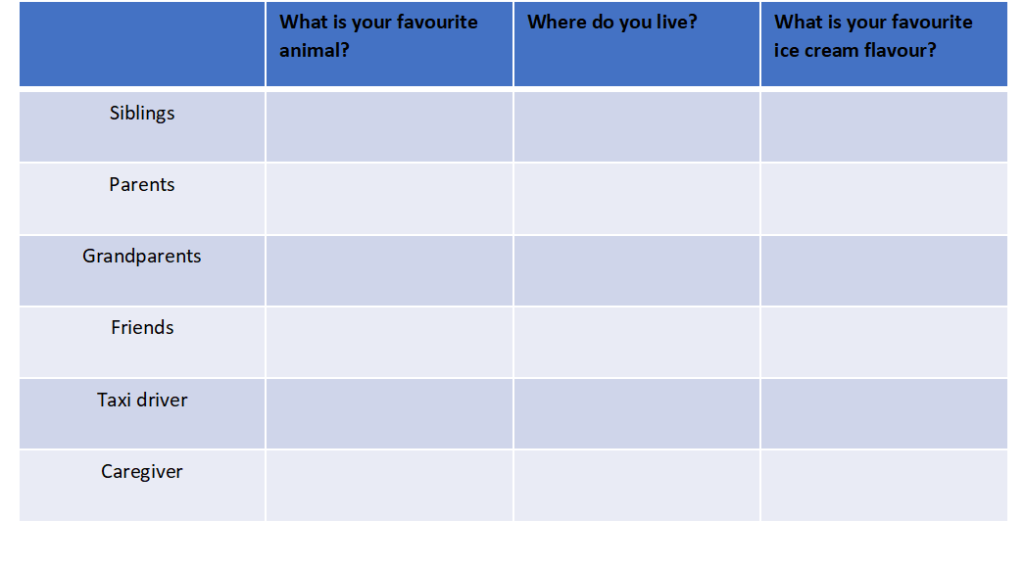Every time the child does brave taking successfully you can ask him to compare the toughness of the situation before and after. This will provide an opportunity for the child to feedback to their brain that they might be over-estimating the hardness of brave talking. You can use a rating scale for the child to describe how difficult he feels it would be before the activity and actually after the activity. Here is what I use for my child –
RATING SCALE

For e.g. before you go to the ice cream shop you ask the child how hard do you think it would be buy the ice cream yourself. Let us say the child says 4. You do the role play and practise.
After the child does the brave talking successfully in the shop ask the child how hard did, he feel it was to do it? Most of the times they will say it was easier and might giving a rating of 2 or 3. You can say “That’s great, it wasn’t as hard as you think”. This will allow the child to feel more confident and believe it wasn’t that difficult.
If the child gives the same rating as 4. You can say “You were right to assess it was a rating of 4 and it actually was but you did it successfully. You must be very brave to able to do it. I am so proud of you.”
If the child says, he finds it harder and give it a rating of 5 then you can “Oh so you thought it would not be difficult to buy the ice cream, but it was harder. Let us try something simpler next time where we could use less words.”
It is also a good idea to reflect upon all the brave talking the child has done through the week. It is important to reiterate and reflect upon their success to make the child feel successful and proud of themselves. You may want to bring together all the brave talking charts and give the child lots of praises and rewards as you go through it once a week.
How Should I Get My Child To Initiate Conversations?
Once the child can talk in different situations it is important, we teach the child to be able to initiate a conversation. This will help the child feel more confident building friendships and relationships in the future.
Give the child a script of simple 3 questions of your choice to ask. At first, ask these questions to the child and then get the child to practise asking you and all the family members the same questions. Once the child is comfortable with the questions then extend the talking to his friends and eventually to strangers. You can think of asking them during playdates, playgrounds, taxi drivers or any other strangers whom you think would be friendly.
A sample of a questions chart which you could download. You could give them a star or a sticker for each task. As always remember to reflect after the child speaks and give them labelled praises.
